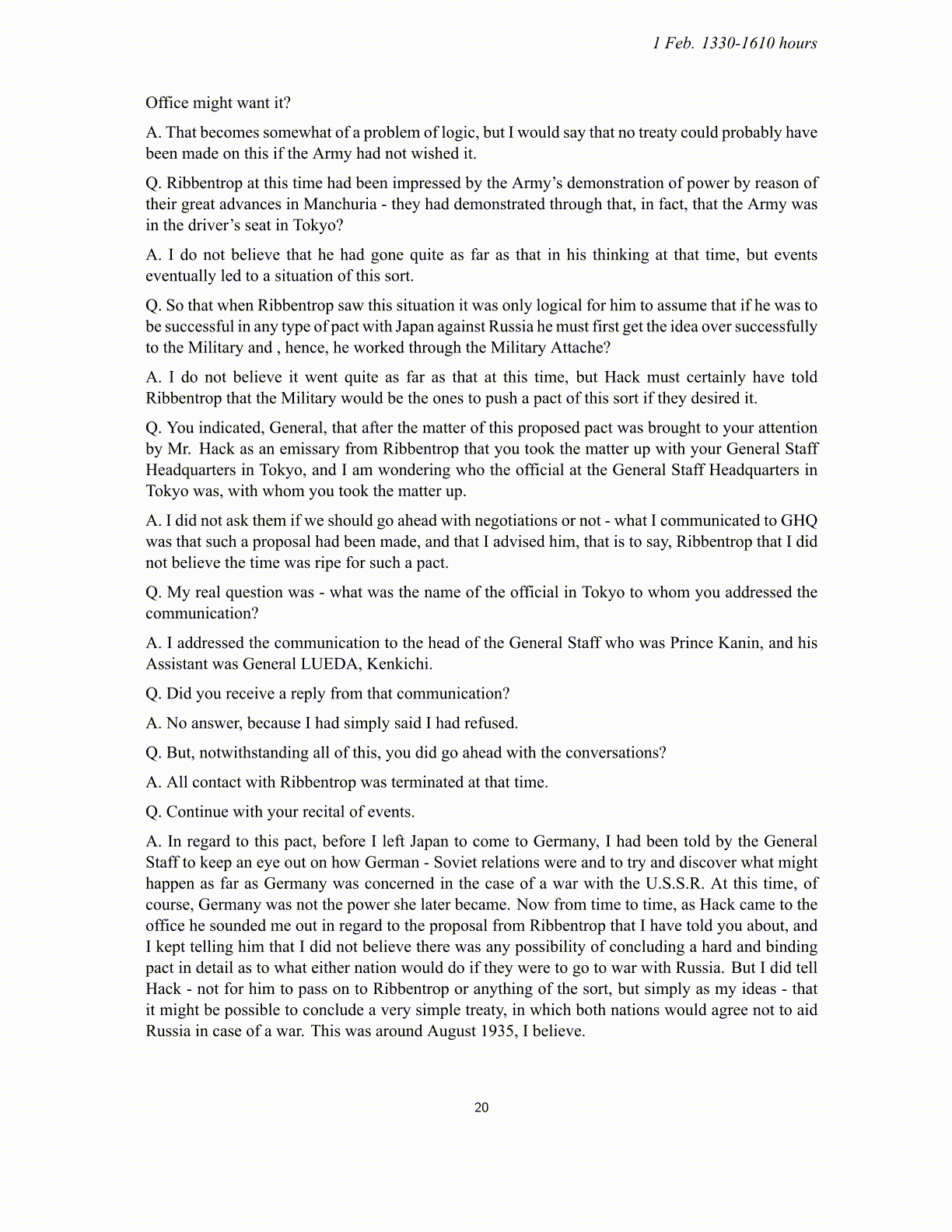
1 Feb. 1330-1610 hours Office might want it? A. That becomes somewhat of a problem of logic, but I would say that no treaty could probably have been made on this if the Army had not wished it. Q. Ribbentrop at this time had been impressed by the Army’s demonstration of power by reason of their great advances in Manchuria - they had demonstrated through that, in fact, that the Army was in the driver’s seat in Tokyo? A. I do not believe that he had gone quite as far as that in his thinking at that time, but events eventually led to a situation of this sort. Q. So that when Ribbentrop saw this situation it was only logical for him to assume that if he was to be successful in any type of pact with Japan against Russia he must first get the idea over successfully to the Military and , hence, he worked through the Military Attache? A. I do not believe it went quite as far as that at this time, but Hack must certainly have told Ribbentrop that the Military would be the ones to push a pact of this sort if they desired it. Q. You indicated, General, that after the matter of this proposed pact was brought to your attention by Mr. Hack as an emissary from Ribbentrop that you took the matter up with your General Staff Headquarters in Tokyo, and I am wondering who the official at the General Staff Headquarters in Tokyo was, with whom you took the matter up. A. I did not ask them if we should go ahead with negotiations or not - what I communicated to GHQ was that such a proposal had been made, and that I advised him, that is to say, Ribbentrop that I did not believe the time was ripe for such a pact. Q. My real question was - what was the name of the official in Tokyo to whom you addressed the communication? A. I addressed the communication to the head of the General Staff who was Prince Kanin, and his Assistant was General LUEDA, Kenkichi. Q. Did you receive a reply from that communication? A. No answer, because I had simply said I had refused. Q. But, notwithstanding all of this, you did go ahead with the conversations? A. All contact with Ribbentrop was terminated at that time. Q. Continue with your recital of events. A. In regard to this pact, before I left Japan to come to Germany, I had been told by the General Staff to keep an eye out on how German - Soviet relations were and to try and discover what might happen as far as Germany was concerned in the case of a war with the U.S.S.R. At this time, of course, Germany was not the power she later became. Now from time to time, as Hack came to the office he sounded me out in regard to the proposal from Ribbentrop that I have told you about, and I kept telling him that I did not believe there was any possibility of concluding a hard and binding pact in detail as to what either nation would do if they were to go to war with Russia. But I did tell Hack - not for him to pass on to Ribbentrop or anything of the sort, but simply as my ideas - that it might be possible to conclude a very simple treaty, in which both nations would agree not to aid Russia in case of a war. This was around August 1935, I believe. 20